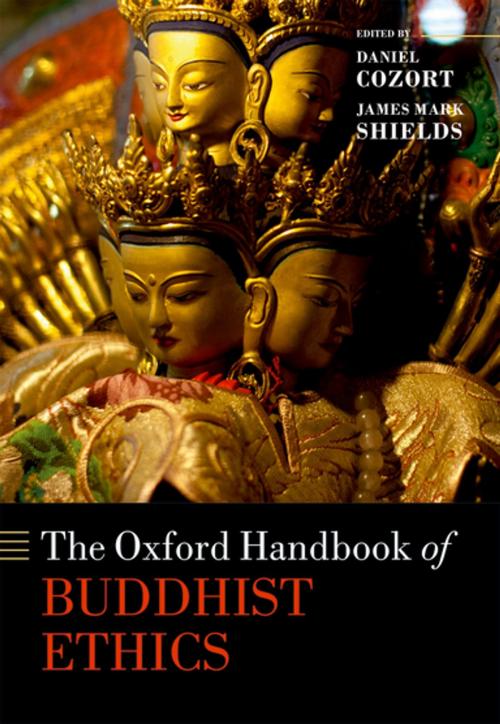The Oxford Handbook of Buddhist Ethics
Nonfiction, Religion & Spirituality, Theology, Ethics, Eastern Religions, Buddhism| Author: | ISBN: | 9780191063176 | |
| Publisher: | OUP Oxford | Publication: | March 20, 2018 |
| Imprint: | OUP Oxford | Language: | English |
| Author: | |
| ISBN: | 9780191063176 |
| Publisher: | OUP Oxford |
| Publication: | March 20, 2018 |
| Imprint: | OUP Oxford |
| Language: | English |
Many forms of Buddhism, divergent in philosophy and style, emerged as Buddhism filtered out of India into other parts of Asia. Nonetheless, all of them embodied an ethical core that is remarkably consistent. Articulated by the historical Buddha in his first sermon, this moral core is founded on the concept of karma—that intentions and actions have future consequences for an individual—and is summarized as Right Speech, Right Action, and Right Livelihood, three of the elements of the Eightfold Path. Although they were later elaborated and interpreted in a multitude of ways, none of these core principles were ever abandoned. The Oxford Handbook of Buddhist Ethics provides a comprehensive overview of the field of Buddhist ethics in the twenty-first century. The Handbook discusses the foundations of Buddhist ethics focusing on karma and the precepts looking at abstinence from harming others, stealing, and intoxication. It considers ethics in the different Buddhist traditions and the similarities they share, and compares Buddhist ethics to Western ethics and the psychology of moral judgments. The volume also investigates Buddhism and society analysing economics, environmental ethics, and Just War ethics. The final section focuses on contemporary issues surrounding Buddhist ethics, including gender, sexuality, animal rights, and euthanasia. This groundbreaking collection offers an indispensable reference work for students and scholars of Buddhist ethics and comparative moral philosophy.
Many forms of Buddhism, divergent in philosophy and style, emerged as Buddhism filtered out of India into other parts of Asia. Nonetheless, all of them embodied an ethical core that is remarkably consistent. Articulated by the historical Buddha in his first sermon, this moral core is founded on the concept of karma—that intentions and actions have future consequences for an individual—and is summarized as Right Speech, Right Action, and Right Livelihood, three of the elements of the Eightfold Path. Although they were later elaborated and interpreted in a multitude of ways, none of these core principles were ever abandoned. The Oxford Handbook of Buddhist Ethics provides a comprehensive overview of the field of Buddhist ethics in the twenty-first century. The Handbook discusses the foundations of Buddhist ethics focusing on karma and the precepts looking at abstinence from harming others, stealing, and intoxication. It considers ethics in the different Buddhist traditions and the similarities they share, and compares Buddhist ethics to Western ethics and the psychology of moral judgments. The volume also investigates Buddhism and society analysing economics, environmental ethics, and Just War ethics. The final section focuses on contemporary issues surrounding Buddhist ethics, including gender, sexuality, animal rights, and euthanasia. This groundbreaking collection offers an indispensable reference work for students and scholars of Buddhist ethics and comparative moral philosophy.















